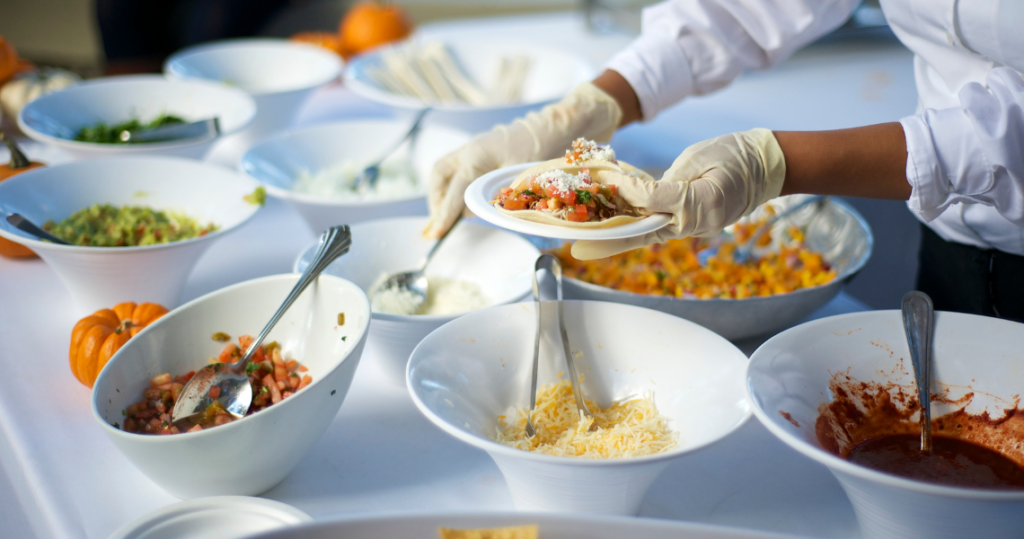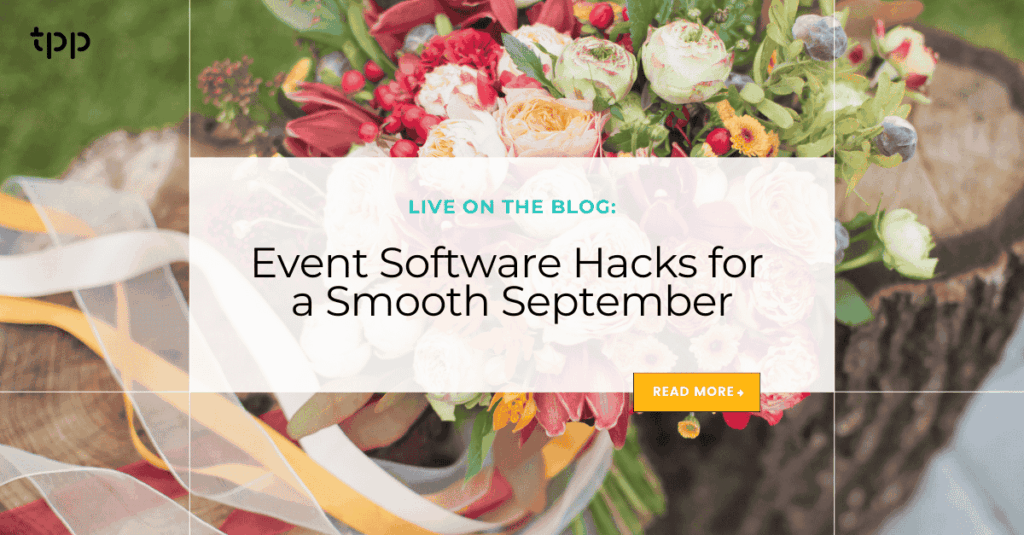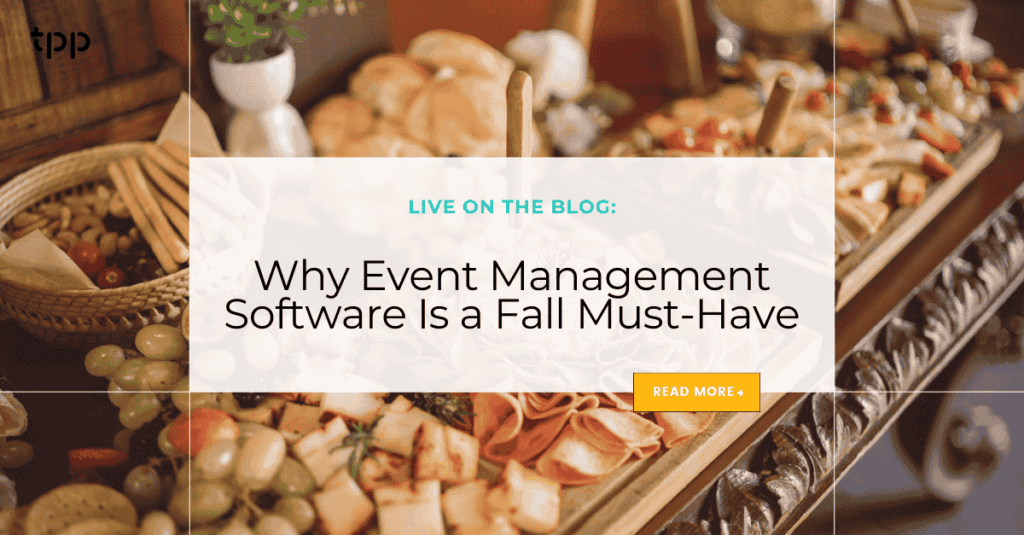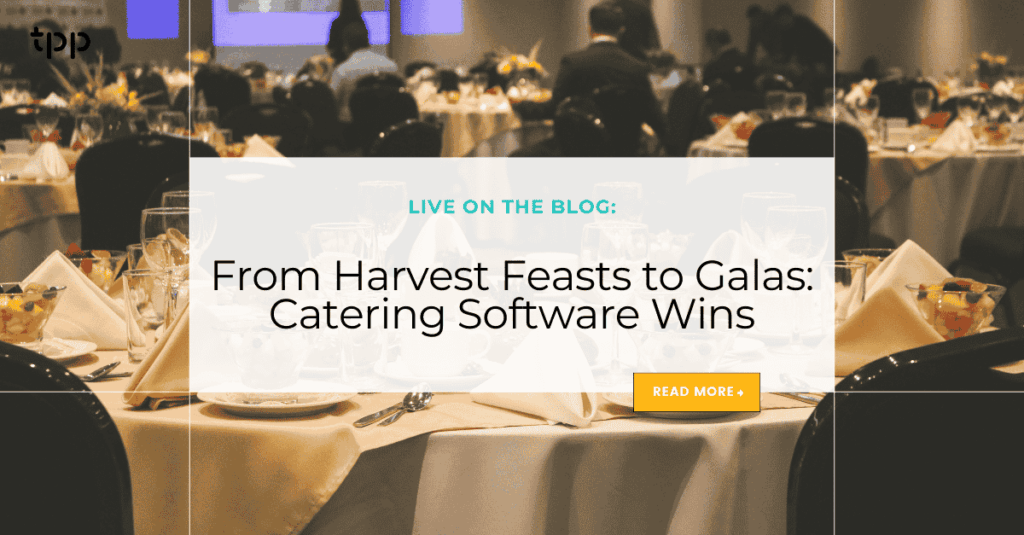Zero Waste Tips for Caterers with Catering Software
Food waste has been a serious problem in the food industry for decades. And the material waste created from packaging and serving food just compounds the problem. But can zero waste initiatives be profitable for caterers? Are there reasonable solutions to food waste and trash in the food and catering industries?
Waste is a problem that spans:
- Socio-economic concerns (how can we throw away so much food when so many go hungry each day?)
- Environmental concerns (it’s a waste of energy and resources to grow food that is eventually thrown away; the rotting food contributes to greenhouse gas emissions; and styrofoam containers and other food packaging waste create big environmental problems)
- And, most importantly for your bottom line, financial concerns (throwing away food is like throwing away cash, plus you have to pay to have waste hauled away, and none of that is good for profits)

In this 3-part series “Can Zero Waste Initiatives Be Profitable for Caterers?”, Total Party Planner brings you the stories of two caterers, one in Minneapolis and one in New York City, to talk about how it’s possible not only to reduce waste but how it can be good for your bottom line. We’ll also share easy ways you can start reducing waste in your own catering business.
How Big is the Food Waste Problem in America?
In a story by The Salt that aired on NPR, Secretary of Agriculture Tom Vilsack said that the USDA estimates that 133 billion pounds of food is wasted each year. According to the USDA website, that’s approximately 30-40% of the U.S. food supply. That estimate takes into account pre-consumer waste (food that doesn’t make it to retail businesses) and post-consumer waste (food thrown away at restaurants and in individual American households).
What does 133 billion pounds of food look like? That’s enough food to fill the Willis Tower (formerly the Sears Tower) 44 times, according to Vilsack in the same interview. And the cost of all that food waste is approximately $161 billion, according to a 2010 estimate on the USDA website.
The USDA says, “This amount of waste has far-reaching impacts on food security, resource conservation and climate change”. Which is why the USDA has made a bold, pioneering move by calling for Americans to reduce food waste by 50% by 2030.
What Does This Waste Mean for Individual Businesses?
If the global impact of food waste doesn’t concern you, consider the impact on your own personal business.
There are at least three reasons why businesses should consider pursuing zero waste and other green initiatives for themselves:
1. Financial
2. Environmental
3. Public relations
Not only does creating less waste usually save you money in the long run, it can make you look really good to clients and the public at large. Environmentally conscious clients will seek you out when they need a caterer. And in today’s competitive market, that’s the kind of difference that can help you edge out your competition.

Heidi Andermack, co-owner of Chowgirls Killer Catering in Minneapolis, told Total Party Planner that the effort to get to zero waste in her business has been worth it, environmentally and financially. “It’s not as difficult to sort as some may think,” she says. “It’s a matter of reconditioning habits. We started catering in 2004, and we’ve had a commitment to sustainability since the beginning.”
They started out using local and organic ingredients, since buying local means food doesn’t need to be transported as far to reach its destination – thus reducing greenhouse gas emissions. They also composted what they could in their home gardens and recycled as much as possible.
But as they grew, that became more difficult. “One of our biggest initial hurdles was getting a manageable trash system,” Heidi recounts. “At our first kitchen, we shared dumpsters with other businesses who didn’t share our values. It was impossible to sort properly. And my husband could only handle so many cases of carrot tops in our backyard compost set up. When we built a new kitchen, recycling and composting were high on our priority list.”
In 2008, they built a second kitchen and were able to design it with sustainability in mind. They partnered with a local organization, Eureka Recycling, to participate in a pilot program that offered commercial composting for Minneapolis restaurants and guidance on how to create a zero waste business.

Today, Chowgirls diverts 97% of their waste from landfills. “Food waste from our kitchen and events is composted commercially,” Heidi says. “We also recycle plastics, paper, aluminum, and spent grease.”
To reduce material waste, Chowgirls orders compostable, eco-friendly food containers, and they try to order food with as little packaging as possible or food that comes in reusable containers. “Our farmers bring greens in reusable containers that we return to them. Chicken comes bulk in a bucket instead of wrapped in plastic,” Heidi explains.
She continues, “We are also fortunate in Minneapolis to have Mayor Betsy Hodges, who has announced a goal of being a ‘Zero Waste City’”. As part of this initiative, Mayor Hodges has announced that in 2016, styrofoam containers will be banned. The city also recently started a city-wide program for curbside pick-up of organic compost.
But Heidi’s commitment to that zero waste goal doesn’t stop there. One of Heidi’s team members Mary Quinn McCallum told Total Party Planner, “Reducing waste and having sustainably-minded practices are a real passion of [Heidi’s]. All employees get training in sustainability, and we have sent several employees through a program to become certified as ‘Master Recyclers’. It’s pretty great.”
Chowgirls Killer Catering is proving that it’s possible to reduce waste in their own business. The team as a whole has no doubt that what they’re doing is great for their bottom line, as well as for the environment. They’re especially lucky to be located in a city that is taking such an active role in supporting eco-friendly initiatives throughout the city.
But what do you do if you live in a city that isn’t as ecologically minded and where there aren’t as many services available? In our next installment of “Can Zero Waste Initiatives Be Profitable for Caterers?”, we’ll talk to a caterer in Brooklyn who has an international perspective, a background in sustainable economics, and who is taking matters into his own hands! He’s actually taking food that might otherwise be thrown away and turning it into another way to generate revenue for his business.
In the meantime, are you curious about how much waste you might be creating in your own kitchens? Check out this online food waste calculator from RecyclingWorks Massachusetts to estimate how much food is being thrown out in your business. The estimates are for restaurants, but the numbers should be similar for caterers, too.
Then, make sure to check out part 2 of this series!
Ready to be inspired and informed? For the latest in catering industry news and trends and small business marketing, join the conversation on social media. Follow us on Twitter, like Total Party Planner on Facebook, and explore our boards on Pinterest.
Want to get advice from other caterers and find out how they do things? Join the conversation with #CaterQuest on Twitter!





